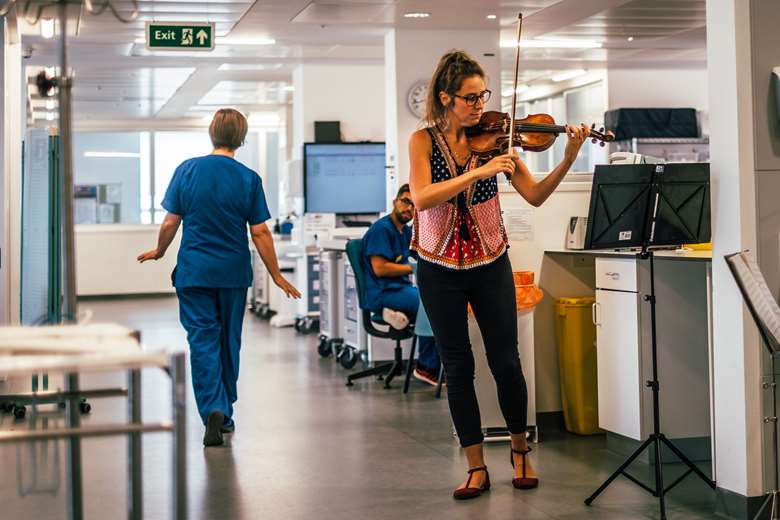ABO report warns ‘inflexible business models’ prevent orchestras from engaging with healthcare
Florence Lockheart
Monday, March 4, 2024
The Orchestras in Healthcare report recommends that orchestras ‘engage fully’ with arts managers within the healthcare sector, offer more training and collect more information about the impact of their work in the field

A new report from the Association of British Orchestras (ABO) has revealed a need for greater flexibility within UK symphony orchestras to allow them to reap the benefits of engaging with the healthcare sector. The Orchestras in Healthcare report found that 79% of ABO member orchestras are engaging with health and social care settings, with a further 7% hoping to do so in the future.
Launched at the ABO Conference earlier this year, the 2024 Orchestras in Healthcare report is the second of its kind, following on from an initial report released in 2020. This latest research, based on a survey of all 66 ABO full member orchestras undertaken in August 2023, reveals an increase in the number of orchestras engaging with the healthcare sector (in 2020 the percentage of orchestras doing this kind of engagement was 63%).
In his foreword for the report, NHS England’s director of community health services and personalised care James Sanderson said: ‘The growth that we have seen between 2020 and 2023 is really encouraging and demonstrates the fantastic work that is ongoing. We all know that music has played a big part in our lives but there is growing evidence that beyond simple enjoyment music can actually have a positive influence on our health and wellbeing.’
Sanderson also calls for further growth in orchestras’ links to social prescribing; the practice of referring a patient to support activities and groups within the community to improve their health and wellbeing. Although more orchestras are engaging with this practice than found in the 2020 report, this still only constitutes around half of orchestras surveyed. Orchestras also reported that, while direct payment for engagement services has dropped, they have been able to find 24% more funding from other sources.
Commenting on this in his foreword, Arts Council England chief executive Darren Henley said: ‘It is encouraging that investment into orchestras for this work has diversified and increased since the first survey and that musicians report wellbeing benefits not only to the patients, families and staff with whom they work, but also to themselves – through opportunities to learn new skills, work within multi-disciplinary teams and explore novel approaches to their own creative practice.’
As well as benefitting patients and healthcare staff, the report also found that engagement with healthcare settings also had a positive impact on the musicians carrying out the work, citing greater confidence, increased creativity, and even a driving factor in continuing their work with their orchestra.
Based on the report’s findings, the ABO has set out the following Next Steps:
- ‘Symphony orchestras risk missing out on significant, impactful work which delivers economic and wellbeing benefits for their musicians, due to inflexible business models.’
- ‘Orchestras should engage fully with networks providing connections with arts managers within the healthcare sector, and begin to navigate the pathways that have developed between the health and culture sector.’
- ‘The focus on this activity to provide meaningful work for orchestral musicians should be universal across the sector.’
- ‘Related to this, there is still scope for more training of orchestral musicians, particularly for activity that requires a specialised approach or outcome. The need for more and better research remains, particularly in recording personal impact from both participants and care/medical staff, to build an evidence base that supports creative practice across both the orchestral and health/social care sectors.’




